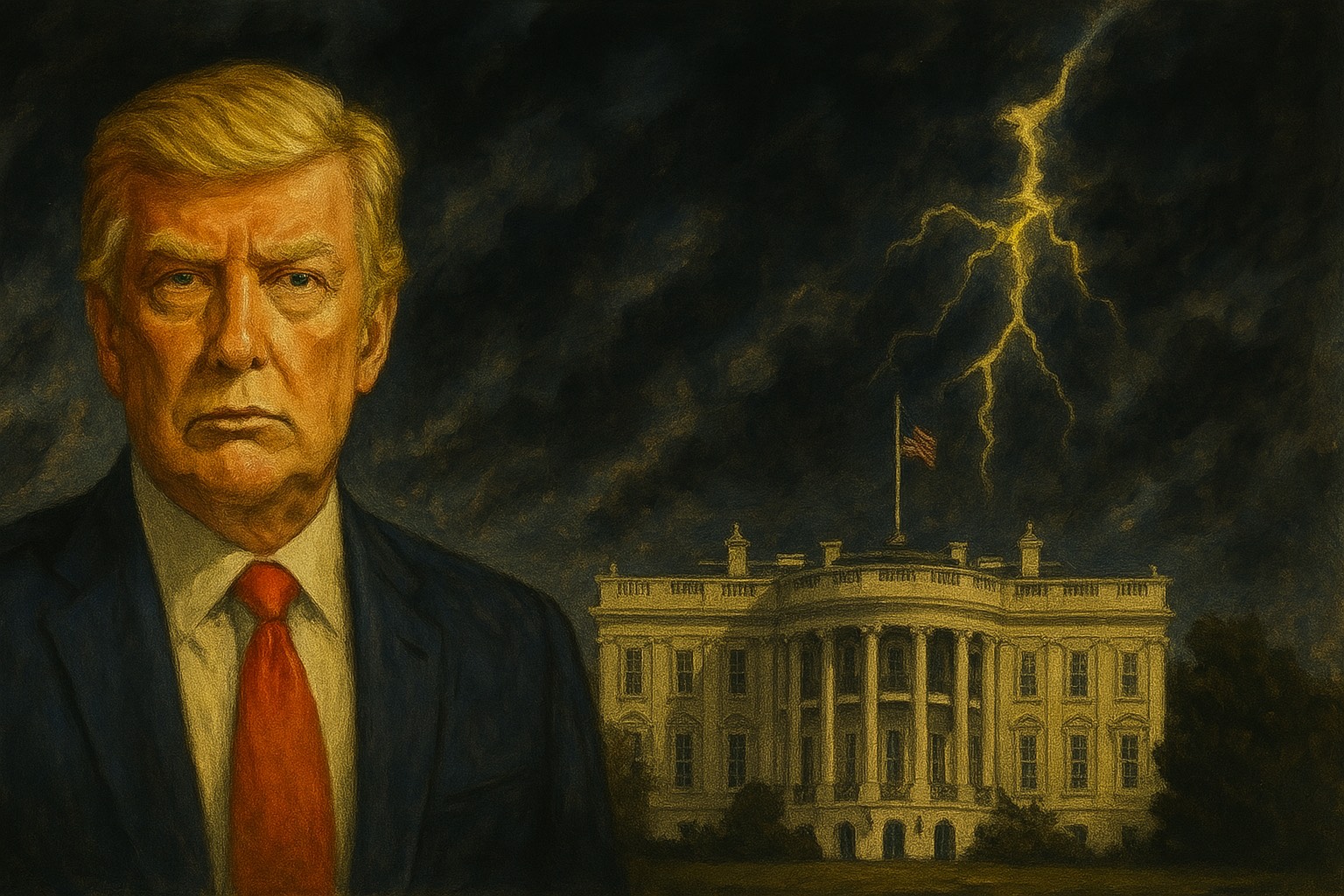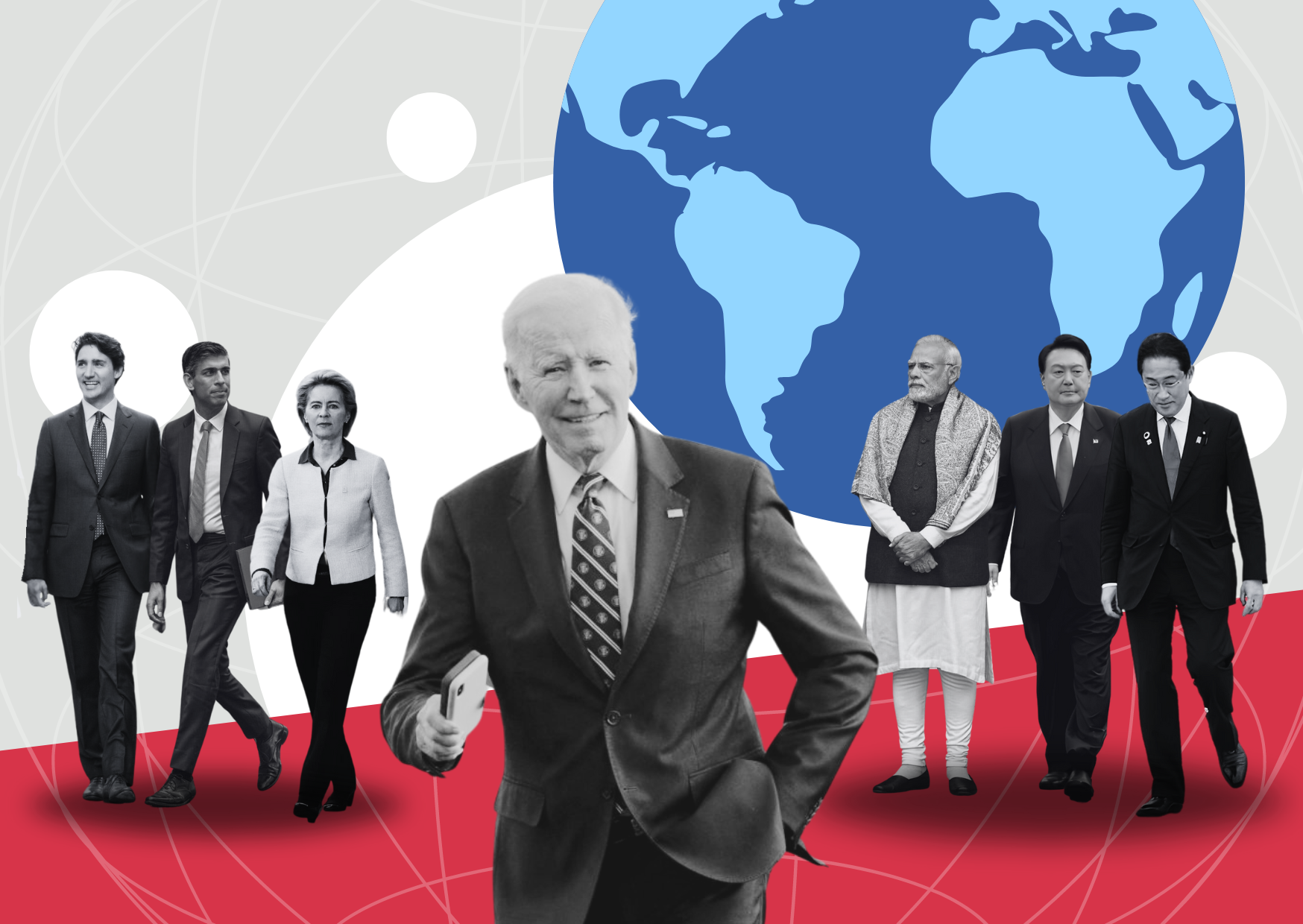









The United States remains the sole global superpower, leveraging strong alliances, effective foreign policy, cultural appeal, and military dominance. Despite China’s economic challenges, it fails to compete in these areas, keeping America firmly in the lead.
JULY 01, 2024

United States of America, to this day, remains as the sole global superpower. I often read many articles emphasizing People’s Republic of China as a challenger to American global hegemony, however I have a different view. China may be seen as a challenger in the economic terms, even though its economy has been struggling to rebound after the COVID-19 pandemic and three years of severe lockdown measures. In every other aspect, China has already failed to compete against the United States for the title of the global hegemon. Why? There are four main reasons: alliances, foreign policy, U.S. cultural appeal, military dominance.
United States has one thing China does not: a reliable network of alliances and partnerships around the world, carefully curated and maintained since the end of World War II. Not long after the Allies divided post-war European continent into zones of influence, United States was presented with another challenge: countering Soviet communism around the world. Cold War was the battle of ideologies and American administrations, both Republican and Democrat, understood this. It is why the United States constructed a global system which emphasized the co-optation strategy. America influenced not only like-minded nations but also defeated rivals, in the case of Germany and Japan, and presented the benefits of democratic principles, market economy and cooperation which molded the international system for the next decades.
That international system was reinforced by NATO, which serves as European collective security umbrella, making the United States a key actor in intra-European affairs. The importance of that role was highlighted by the Russian full-scale invasion of Kyiv on 22nd of February, 2022, as the U.S. intelligence and military equipment support to Ukraine was essential in providing the country a fighting chance against a much larger opponent. While the domestic U.S. political noise may hinder the delivery of crucial aid to Ukraine and most recently Israel, the bipartisan resolve to ensure American global leadership is still alive and well, reflecting in the most recently passed comprehensive $61bn assistance package for Ukraine, third of which would replenish weapon systems and ammunitions.
These alliances America was able to maintain are not a one-way street, even though it may seem that way sometimes for ordinary Americans. While it is true that United States provides a security umbrella for the entire European continent and has security arrangements in other regions in the world, America reaps the benefits of those arrangements. Benefits come in many forms, from intelligence sharing, procurement of U.S. made weapon systems to providing a reliable flow of semiconductor microchips which are essential for U.S. industry and economy. Also, let’s not forget that the NATO Article 5 was invoked just once in NATO’s history, right after 9/11. U.S. allies came to help.
In comparison, China does not have this kind of elaborate network of alliances on its side. I believe there to be a few reasons for that but the primary one I see is a shift in foreign policy. More assertive China, with a coercive diplomacy and predatory financial lending practices, destroyed any hope of alliance building in the future. I believe many in the West chose to ignore the possibility that China may become more aggressive in the pursuit of its national interests, as it starts to grow economically. Deng Xiaoping’s era was marked by the promotion of China as an investor-friendly country and its foreign policy mirrored just that. West got complacent as it reaped the profits of globalization. Xi Jinping’s era has been marked as the complete opposite. West opened its eyes to the reality and now strategic “de-risking” will commence, in order to ensure the security of critical sectors of the western economies.
American foreign policy changes with every Presidential administration and of course the strategic objectives change with it. One element however remained constant, from the end of the Cold War until today, even in the Trump years: American leadership on the global stage must be maintained. The backbone of this global leadership remain the alliances United States established, even at times when U.S. foreign policy objectives did not necessarily reflect the objectives of its allies. Why is this the case? Samuel Huntington, a Harvard political scientist, rightly noted: “A world without U.S. primacy will be a world with more violence and disorder and less democracy and economic growth than a world where the United States continues to have more influence than any other country in shaping global affairs.”
Chinese foreign policy, under the Xi Jinping leadership, got a new brand: “wolf warrior diplomacy”, which is exactly the moment when China lost any opportunity to out-compete the United States for the position of a leading global superpower. This way of coercive diplomacy pushes nation states away, instead of bringing them closer to one’s goals. Aggressive actions against its neighbors like expansions into South China Sea by establishing artificial islands and turning them into military bases and harassing fishermen, supporting the Russian war effort in Ukraine by providing Russia with needed materials to produce weapons as well as being more aggressive on Taiwan, makes the Western states think twice about conducting business with China. The West needs to follow through on its de-risking strategy by ensuring strategic businesses open new production facilities on Allied territory, in order to ensure economy/energy sector is not used by China as a weapon, like Russia did with Gazprom. Naturally this means some products will become more expensive but that is a small price to pay for ensuring stability.
The United States is a land of opportunity, where you can be anything you want to be, if you try hard enough. Or at least, that’s how it was portrayed in Hollywood films. I personally have found it to be true, even at the present time when American society is extremely polarized. America focuses on individual freedoms, rule of law, democracy and human rights. Its spirit is entrepreneurial and it attracts self-driven and ambitious people from all over the world. Silicon Valley is the global hub for high-tech and innovation. America is leading in Artificial Intelligence (A.I.) development due to its sourcing of talent and youth empowerment.

China is a country with a repressive, authoritarian system which does not foster critical thinking or ingenuity, it cracks down on them. Human rights are abused, entrepreneurial spirit cannot fully develop because of a rigid communist system and those companies which are already existing within the system, must follow the Communist Party instructions. China is simply not a country which attracts foreign bright young minds, America is.
United States of America has the capability to project power at any corner of the globe, thanks to 750 military bases across 80 nation states. This is thanks to the previously discussed elaborate network of alliances America established. Its military has the warfighting capabilities in five key domains: maritime, air, land, space, cyberspace. The U.S. defense spending remains the largest in the world, giving it a competitive edge over its strategic rivals. China currently has the largest naval force in the world and it is attempting to expand upon its forces. China also does not have military bases around the world, which hinders its capacity for power projection in a short period of time (not including secret police bases around the world as they serve a different purpose). US however has more aircraft carriers than China, allowing it to dominate maritime and air domain simultaneously. I believe this trend of United States being the largest defense spender in the world is going to continue and US will maintain the competitive edge.
To conclude, alliances were one of the main reasons why United States was able to achieve the status of a global superpower. For the U.S. to maintain this status, both political parties in Washington D.C. need to understand the new global dynamics. Autocratic regimes are joining forces in order to disrupt the rules based international order and are assisting one another to evade sanctions by the Western world. Now is not the time for partisan politics when it comes to foreign policy. Now is the time to unify under the idea of American global leadership, both Democrats and Republicans, and maintain a consistent foreign policy towards adversaries and allies. Support for democracies is of critical importance, especially for those under threat from autocratic regimes. Anything else other than this form of bipartisanship, will lead to a decline in American influence and make the world more unstable.
A curated seletion of FA’s must-read stories.
Written By: SeungHawn Kim
Written By: RIZWAN RAFI TOGOO
Written By: MARCO MENDEZ
Written By: KRISHNA ACHNAF HERINDRA
Written By: BILLY AGWANDA
Written By: SURUTHI LENIN
Written By: BERK TUTTUP
Written By: ALEXANDER BERGH

Haris is a foreign policy specialist, author of several published academic articles on NATO and international migration flows. He served in the U.S. House of Representatives as a Foreign Affairs Fellow, OSCE Mission to Bosnia and Herzegovina Department of Security Cooperation with the Youth Advisory Group and in academia.
Written By: BATUHAN GUNES
Written By: KRISTIN HYNES
Written By: ERIC SONG
Written By: ALEXANDER BERGH
Written By: KATE-REID SMITH
Written By: JOSEF SCHOEFL
Written By: PATRIC MCFARLAND
Written By: FATIH CEYLAN
FA’s flagship evening newsletter guilding you through the most important world streis ofthe day. Delivered weekdays.